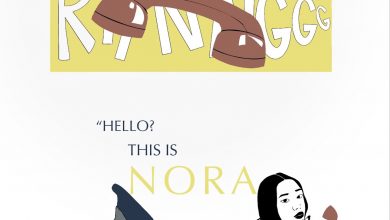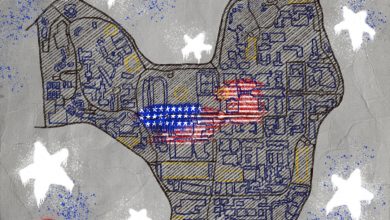“The Adventures of Tintin,” Gender and the Power of Nostalgia
Is it wrong to like “Tintin” even if there are no female characters?
I have a confession to make: I absolutely love “Tintin.” Like, seriously love the character, love the books, love everything. Ask all my close friends – I am constantly talking about how much of an influence “Tintin” had on my childhood. The reason for this is that I went to a French school starting in kindergarten and one of the first books I ever read by myself in French was “Les Sept Boules de Cristal” (translation: “The Seven Crystal Balls”). And once I figured out I could read them by myself, I read all the ones they had in the school library. So when I went to France last year, my biggest mission was to find a bookstore and buy as many as I could afford. And when I found out that a movie was being made by Peter Jackson and Steven Spielberg, I was ecstatic. I talked about it for months, almost cried when I found out it would be in Europe long before it debuted in the United States and made a point to go see it as soon as it came out. And, to be honest, I loved it. So much so that I plan on seeing it again before it leaves theaters. The only problem is, there are no real female characters except for a couple women who make barely a dent in the storyline.
This is an issue I never noticed as a child – I remember the “Tintin” comics as gender-less. It was just a fun adventure with a fearless journalist, a crazy sea captain, bumbling twin detectives and a cute dog named Milou (why they translated the name to “Snowy” in the English versions is something I’ll never understand). To young me, this was not a boy’s book and the lack of female characters went right over my head. It was just plain, simple fun.
It was only last year, when I finally looked at the books again after almost a decade, that I realized there were no female protagonists. Part of me was shocked; how was it that I had totally missed such an important detail? Another part of me was not all that surprised. After all my experiences as a woman and as a student majoring in women’s studies, I know that there exists an assumption that girls and women will see stories geared toward boys and men, while the reverse won’t happen. And, if anything, my experience is proof of this point. If Tintin was a young female journalist, the captain was a drunk woman and Milou had a bow on her head, I most likely would have paid attention to the gender of the characters because it would have been abnormal. And there’s a good chance that my male peers would not have read the books at all because they would have been branded as books for girls (plenty of pink included).
But, for all the serious moral flaws, I have to admit that I still love “Tintin.” Which brings me to a personal dilemma: how would I feel if Spielberg had changed some of the main characters into women? What if Haddock was a female captain in the new film? Or how about the bumbling twin detectives? Would I have loved the film as much as I currently do?

Honestly, I think my answer would be no. Though I thought of the characters as gender-less before, I still would have noticed such a change. And I love the characters as they are. Seven-year-old me loved them and twenty-two-year-old me loves them because they are my childhood. When I think of my youth, I think of “Tintin.” And the nostalgic part of me never wants the characters to change.
The rational part of me feels differently. As a feminist, I want there to be more strong female characters in children’s books. I think it’s a necessary part of changing the way we as a society treat masculinity as though it’s the norm. And considering that most of the children who go see the new film have probably never heard of “Tintin” before, this would be a chance to make progress. Why introduce more kids to a male-only world if we don’t have to?
Nostalgia is a tricky thing. I think we use the past to justify sexism, racism, classism and homophobia in the present. As long as it’s a part of a beloved tradition, we see an excuse to not make the changes that are necessary for progress. Which should be the ultimate goal. Living in the past can be fun, but the present and future are far more important. Which is why I do hope that the planned sequel includes some strong female characters, even though Spielberg will have to ask his team to write them.
All I ask is that they not make them stereotypical. The debate over the better option between stereotypes and absence is a subject for a whole different post. And if they do include female characters, I’m pretty positive that everyone will still fill the movie theaters. I know my friends, family and I will.
Now, who do I talk to about changing the dog’s name back to Milou?





Wonderful article!